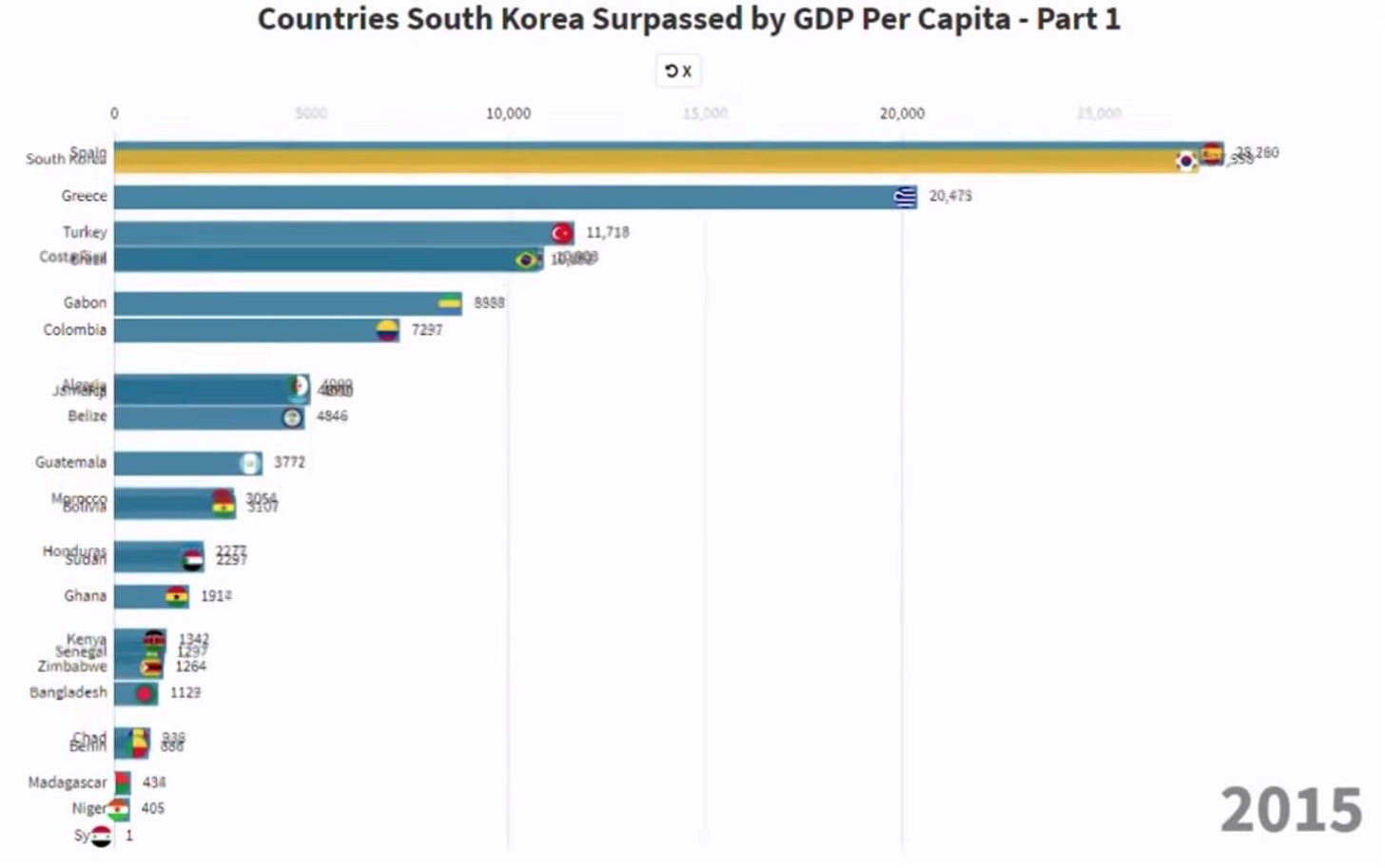
PermaPlanting 🌿
(disclaimer: Made up word in English that I translated from a movie I briefly review below. Not permaculture. I haven’t yet decided if this is the title for the post or the newsletter.)
When certain plants are sown, they are temporarily planted in one area and then moved to be permanently planted in the final spot. Plants that have this traumatic move actually grow to be stronger and healthier than their single-homed counterparts.
Our environment changes in many ways throughout our lives (change cities, homes, jobs, friends, significant others), and I like to think that these experiences are building us up to be the person that can best thrive in our final homes.
Here are my thoughts and learnings along the way. The main goals are to share my thoughts in writing, to have more structured conversations, and to provide cool entropy for readers. Format will be unrelated collection of links, photos, quotes and musings since last time I posted. Thanks for reading!
tl;dr Economics, privilege and startups, movie reactions, productivity tips, music links, tech and real estate, NYC.
Small Bites 🍿
Korean wave 🇰🇷 Visualization of Korea GDP per capita going up like crazy from 1960 (reddit video and discussion)

I left Korea in 2006. What’s staggering to me is that while the growth in the 80s and 90s got the country out of poverty, but really the last ten years has continued on an exponential growth in terms of standard of living. I often am shocked by how much nicer public infrastructure and healthcare are vs US.
Real estate 🏢 How real estate barons have ridden the tech wave (The Economist, sub required, I read it at a cafe). tl;dr As retail struggles, malls are dying, but certain REITS are growing by double digit billion dollars in value by cleverly repurposing space as datacenters and finding new lots for fulfillment centers. Related:
New York 🗽 I was in NYC for a few days this week. (Prospect Park in Brooklyn is amazing. Go check it out!) I love the energy of the people and the aesthetic (history, style, attitude). But after a few days, I miss space and nature. I was excited to come back to California; travel always seems to just remind me of how much I love home.

Salads 🥗
Personal Finance – If you need to keep better track of your spending, try out Tiller. It’s a simple tool that uploads your financial data on a google sheet for you. Much more customizable than Mint and now I have much better control over my finances (I looked at YNAB as well, check out /r/personalfinance).
Split mechanical keyboard and monitor arm – If you spend all day in front of a computer and have neck or shoulder tightness, invest in a nice set up. The key is to raise your gaze to eye level and lower your forearms to the natural height by your lap. Bonus points for split keyboard that opens up your chest and tilted keyboard that rotates your forearms naturally. Monitor arm also visually clears your desk and can easily rotate 90 degrees for long reads/writes or coding. For keys, cherry browns working out well for me. These upgrades will change your life.
Bedside Table – I got a new end table for my bedroom, and it has noticeably improved my day-to-day. My bedroom just feels lighter, and it gets me started on my day like a cup of coffee. Crazy how a piece of furniture can affect your mood and productivity like that.
Vimium – Keyboard shortcuts for your browser. During my 10 months on Wall Street, they made a point of never using the mouse to save time while working. Old habits die hard I guess.
Spectacle – Window manager for mac OS. Windows does it natively, but Mac needs this to be complete.
MVVM for iOS – Toss MVC and free your views from mutability! Can’t believe there isn’t better native support for these bindings. Follow Pilot from Dropbox which is open source.
Gitlab – I’m trying this instead of Github. Stay tuned.
Entrees 🥩
A movie for nourishment: Little Forest (not highly rated, but I loved it).

Cycles. One of the central motifs of the film was that timing is everything. Set in a beautiful rural village throughout the four seasons, it draws poignant analogies to other cycles in life.
City vs farm. They juxtapose lack of control that the average person feels in the city vs the agency that they have in farming.
The move before you settle. They discuss trans-planting (?) vs perma-planting (?). In a time when people are constantly moving from city to city, it’s comforting to think that the trauma from moving actually strengthens the plant for its final move. [namesake for this post!]
Wabi-sabi heaven. Beautiful shots of: cooking in small delicate home. Perfectly imperfect physical space. Wabi-sabi is a design aesthetic that my roommate told me about.
Spontaneity. I loved how people just dropped in on each other’s homes randomly for meals. Felt cozy compared to the world of calendar invites.
Silence. We live in a culture of loudness and attention. I loved how the movie expressed the depths of expression in the things unsaid. Note to self: somethings are better left unsaid.
Privilege and Creativity
Lots of tweets the past few days on tech Twitter on privilege and how it relates to starting companies.

I think both parties are talking past each other a bit.
Core Beliefs:
Camp A (i.e. PG): not being privileged shouldn’t stop you from starting a company. Camp B (i.e. @eastdakota et al.): hard to take risks without safety net / privilege.
They are both true. However, it seems like the friction is happening from the extremes of each case.
1/ Camp A extreme (palatable): Being poor shouldn’t stop you from trying a startup.
2/ Camp A extreme (unpalatable): Wealth doesn’t matter in your chances of success.
3/ Camp B extreme (palatable): Having money helps when working on startups.
4/ Camp B extreme (unpalatable): Startups are mostly for rich people to get richer.
Startups are a game of exceptions, not averages. That said, the palatable version of each camp is true. Nothing should stop you, capital is ultimately available for all talent if you try hard enough. On the other hand, life is path-dependent, so it would be a bold-face life to pretend that everyone’s path will feel the same. They won’t.
—
I have been both privileged and underprivileged at various points in life. I remember getting free lunch when we moved to the US because our income made us qualify for low-income subsidies (was a foreign concept to me at the time). Such safety nets helped me stand up and achieve academically. With hard work and good fortune, I got into Harvard. But more so than being a good school, I was relieved that they had one of the best financial aid programs.
Even getting into Harvard isn’t enough, if I had $200K of student debt, I would have focused on paying that down and would not have been able to take more risks and learn more, faster. I’m so lucky that Harvard and the US government gave me the chance to get a top education.
After various programs for underprivileged students, I’m now probably categorized as exceptionally privileged. I’m grateful by how much good fortune I’ve had since school. However, what I noticed is that something in my core intuition is still different than my peers that come from a more “originally” privileged background.
Most of my friends from low to middle income backgrounds (and from prestige-driven cultures) pursue stability and immediate returns available in finance, medicine and law. Friends that take time off for creative work or “untraditional” paths tend to be from more affluent backgrounds, and if not, they had to take a big sacrifice to take the path less taken.
I just started a company, but it took me a long time to get comfortable with it. Years of doing “risky” and “non-linear” things got me to this point. I’ve hesitated in the past and still fight a nagging feeling today that if I made cash today, I could help my parents retire sooner.
I understand that PG may genuinely want more people to try it, and that’s a great ethos to establish. However, the reality is that it’s very hard to make that trade off mentally when you newly get the possibility to start making amounts of money that can be life-changing for your family.
Here’s where class comes into play. It might make sense to swing for the fences and give up a 100k salary if you come from a comfortable background (it won’t make a difference for you or your family anyways), but if your family is making say 50k total, how selfish does it sound that you are giving that up (or much more) to pursue your “dreams.” (That’s an iconically American and millennial pursuit.)
As such, the single player tradeoff of eating more ramen noodles or driving a less shiny car is a weak strawman argument compared to the downstream ramifications of the sacrifice to their family. Sure some people can’t give up their own lifestyle, but the real struggle is when you realize your lifestyle and identity starts to diverge from that of your family and your identity within it.
Ironically, PG wrote a book that compares hackers with artists. Art has traditionally been reserved for the humble artisan class or the rich. Another similar example is philosophy; to explore human nature freely and to express themselves is a pursuit economically reserved for the wealthy or those that choose a life off the beaten path.
At the end of the day, privilege helps when building a startup. It’s not just about startups, it’s really about any creative endeavor. Starting your own cafe, making a movie, becoming an actor; in any case, you have to take an economic sacrifice. So you either need a high pain tolerance or have enough of a safety net to not feel the sacrifice.
In sum, save enough to be able to stomach the risk of your venture or find something you care enough to risk it anyways. There’s no blogpost that can tell you the right time, only you can decide.
Dessert 🍰
What I listen to while I work:
One of my favorite music videos:
(Wes Anderson is one of my favorite film makers and it’s funny to see the parallels of vibrant yet faded color tones with a tinge of absurdism. More on this on another post.)
This post was a bit longer than what I expect I will write in the future (heavy on productivity, Korean media, and randomly went in super personally re: privilege and creativity), but we’ll see how next one shakes out. Let me know what you think, and kindly share with friends that would like it. Thanks for taking the time!
Time period: April and May 2019.
Total time to compile and edit: 3hrs on a Sunday.



